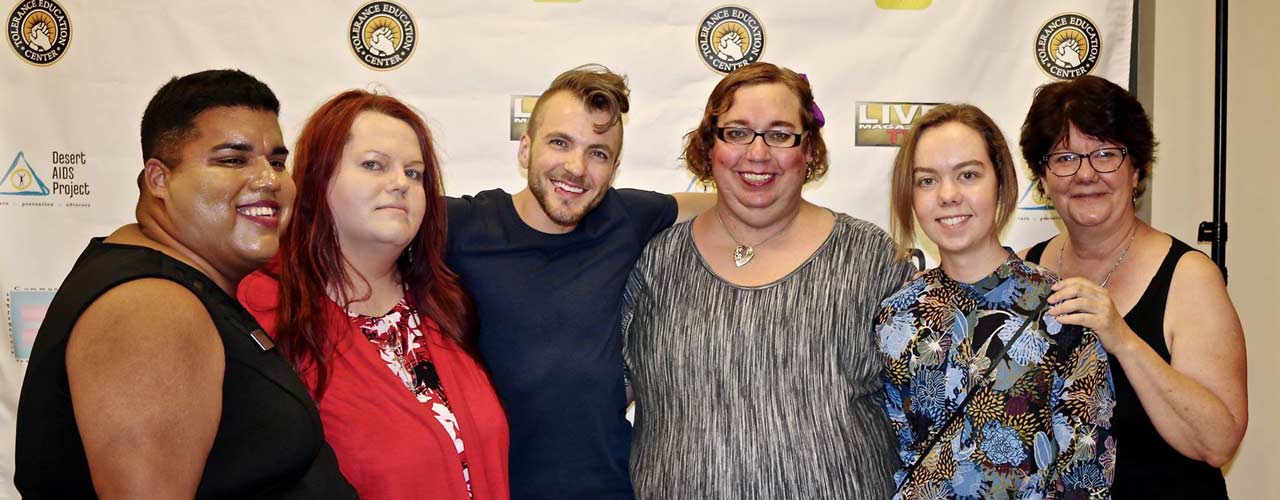When it comes to helping transgender individuals on a day-to-day basis … whether that means finding a job or accessing culturally-competent medical and psychological care … it’s all about putting aside the stereotypes and embracing people for who they are.
That was clearly the main message to the crowd of about 60 who gathered for Trans Pride 2016 at the Tolerance and Education Center in Rancho Mirage on June 28. The event was sponsored by D.A.P., using a portion of a grant from Riverside University Health System.
The message was reinforced – with a call to self-empowerment – thrown in by keynote speaker Aydian Dowling, the 27-year-old trans bodybuilder, activist, and vlogger who’s recently appeared on TV’s “Ellen” and has a popular YouTube channel called “ALionsFears.” Though Dowling didn’t win a competition to land the cover of Men’s Health magazine – a 2015 campaign backed by thousands – he was eventually featured on a special edition cover with other men. Little wonder that a recent Gay Times magazine cover featured a photo of his tattooed torso with the headline “What a man! The incredible journey of Aydian Dowling.”
D.A.P. Clinical Psychologist Dr. Parker discussed updates in medical and mental health treatment for the transgender community. Emerging best practice models promise to be less stigmatizing and more inclusive of input from the transgender community. Because transgender health care is an evolving practice, Dr. Parker recently attended a four-day education initiative by WPATH—the World Professional Association for Transgender Health—in Atlanta to sharpen his skill at treating transgender clients.
“Over the last five years there have been major changes in mental health approaches for transgender clients,” Dr. Parker says. “Access to services has grown, in part because of the Affordable Care Act. Clinicians and organizations can get new information and models for best practices that previously were hard to acquire if you didn’t live in a major center for transgender health.”
Examples of the new information includes Injustice at Every Turn, an exhaustive survey of 6,450 subjects documenting “in horrific detail” the discrimination that often befalls transgender people and its effect on their mental health. Significantly, the distress that comes from feeling the gender assigned at birth is wrong for you is now called “gender dysphoria” instead of “gender identity disorder.”
Dr. Parker says he believes those who changed the definition in the manual of mental disorders, DSM-V, listened to the transgender community. The goal was to stop labeling the condition a sickness, while maintaining a diagnosis that allows insurance to cover hormone, surgical and other care that might be needed.
Beyond health care, D.A.P.’s Career Building Coordinator Valerio Iovino – who helps D.A.P. clients find jobs, return to school, or gain valuable volunteer or internship experience – spoke to the crowd about innovations in support for the transgender community. For him, offering support is simple: fight the stigma that the world attaches to transgender job applicants and focus instead on their skills and knowledge.
“We don’t worry about the way people look,” Valerio told the applauding audience. “We focus on what they can do.”
Photo by Luis Alberto Gavela









